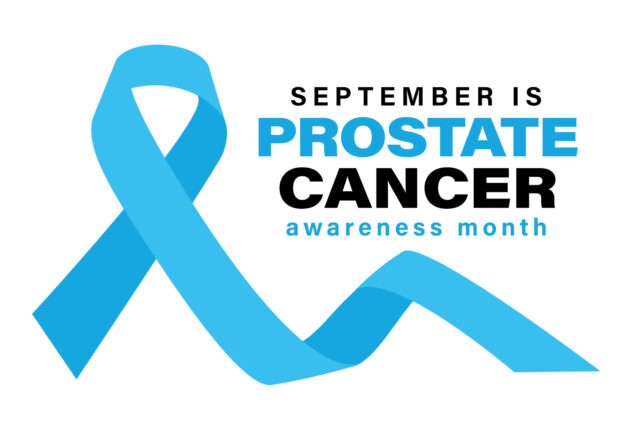What every man should know about prostate cancer
Prostate cancer is the most common type of cancer found in American men after skin cancer, and it is the second leading cause of cancer deaths in men. Understanding this type of cancer can be a first step to prevention.

Prostate cancer is the most common type of cancer found in American men after skin cancer, and it is the second leading cause of cancer deaths in American men. Understanding this type of cancer, including risk factors, screening recommendations and treatments can be a first step to prevention.
What is the prostate?
The prostate is a walnut-sized gland that lies between the bladder and the penis. It secretes fluid for the nourishment and efficient transport of sperms. It secretes a protein called prostate-specific antigen, or PSA, that is used to screen people for prostate cancer. The prostate gland becomes enlarged with age, causing urine problems in some men.
How is prostate cancer detected?
- A PSA blood test is used to screen for prostate cancer in men.
- A digital rectal exam, or DRE, is used to detect abnormalities in the prostate contour.
If either of these tests is abnormal, further testing, including an MRI or a prostate biopsy, is done to detect prostate cancer.
What are risk factors and symptoms of prostate cancer?
There is no specific cause of prostate cancer that we know of, however, researchers have identified some major risk factors.
- Age – a man’s chance of getting prostate cancer increases after age 50. About two-thirds of prostate cancer is diagnosed in men age 65 and older, with the average age of diagnosis at 66. It is rare in men under 40.
- Race – prostate cancer is more common among African-American men. It also occurs less often in Asian-Americans and Latino men than non-Hispanic whites.
- Family history – men with immediate family members who have had prostate cancer are more likely to get it themselves, especially if the relatives were young at the time of diagnosis.
- Genetics – Men who have family members with genetic mutations in the BRCA 1 and BRCA 2 genes are at greater risk of developing prostate cancer.
There is no clear evidence indicating diet, obesity, smoking, sexually transmitted disease or inflammation of the prostate are risk factors for prostate cancer.
Prostate cancer has no symptoms until it is in the advanced stages. At that point, men may find it difficult to urinate, have blood in their urine or have pain in their bones, secondary to the spread of prostate cancer.
When and why should I get screened for prostate cancer?
Early detection increases the chances of surviving prostate cancer. The National Comprehensive Cancer Network recommends men should get yearly screenings starting at the age of 50. Screenings should consist of a digital rectal exam, as well as a PSA blood test.
What are the treatment options for prostate cancer?
Prostate cancer is a slow-growing tumor, and not all prostate cancers need to be treated. Active surveillance is a way of monitoring prostate cancer without treating it. Active surveillance is tracking the prostate cancer’s status through routine PSA tests, DREs, biopsies and imaging, where action is taken only if the cancer changes or grows.
However, depending on the stage and grade of the disease, there are multiple treatment options for cancer that is clinically localized to the prostate and has not spread outside the prostate. Some treatment options are:
- Radical prostatectomy – removal of the prostate. This procedure may be performed in a minimally invasive way, such as laparoscopically, using a robot or through a traditional, larger incision.
- Radiation therapies – external beam, which is radiation focused on the prostate from outside the body, or brachytherapy, where radioactive seeds are placed in the prostate through the skin.
- Cryotherapy – the prostate is frozen and rapidly thawed, using needles placed through the skin.
- Other focal therapies – There are focal therapy technologies that are available but not specifically approved for treatment of prostate cancer including use of ultrasound waves (HIFU), using MRI guidance to ablate small foci of cancer (TULSA), LASER ablation of the cancer foci, etc. Although the safety of these interventions is shown, currently none of these treatments are shown to improve prostate cancer survival. The only recommended use of these technologies is involvement in a clinical trial in a research environment.
For patients who have prostate cancer that has already progressed outside of the prostate, medications that block the action or stop the production of testosterone are used to help control the cancer. Novel drugs are used, in addition to the hormone therapy, which prolong life in men with prostate cancer that has spread outside the prostate.
For prostate cancers that no longer respond to hormone therapy, there are chemotherapeutic and other agents that attack prostate cancer cells throughout the body.
Recently, there are targeted medications that work on specific genetic alterations in the prostate cancer. If the cancer harbors specific mutations, there are multiple targeted medications for treatment of prostate cancer.
In recent years, the studies have shown that combination of blocking androgen production, androgen receptor, and chemotherapy in early stage of metastatic prostate cancer might be more beneficial to patients.
How can I reduce my risk of developing prostate cancer?
While there is no sure way to prevent prostate cancer, the best way to ensure you do not end up with an incurable cancer is to schedule your prostate cancer screening. Talk to your primary care doctor for prostate cancer screening if you are 50 years or older.
UF Health Urology – Jacksonville offers a comprehensive range of urological services in a patient-friendly environment and partners with the National Cancer Institute and UF Health Proton Therapy Institute to provide access to state-of-the-art urological cancer protocols.
Visit UFHealthJax.org/urology or call (904) 383-1016 for more information.
